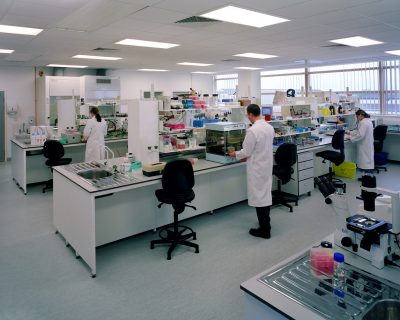It has been nearly 500 days since COVID-19 entered the United States. Throughout this time, medical professionals and students were at the center of fighting the pandemic.

With more than 141 million Americans having received at least one dose of a COVID-19 vaccine, medical professionals at Boston University reflected on how they made it through the uncertainty of the pandemic and what they’re doing moving forward.
Archana Asundi, a research assistant professor at the BU School of Medicine specializing in infectious diseases, said she has been working with COVID-19 since the beginning of the crisis — witnessing the first wave of COVID-19-positive patients and altering her research to determine the best way to treat them.
“I do clinical research in infectious disease, predominantly in HIV,” she said. “That infrastructure allowed for us to be able to take on COVID clinical studies on new therapeutics, so we were the site for a couple of studies on that.”
Asundi said it was “definitely unsettling” for her and other medical professionals to approach COVID-19 knowing little about the virus toward the beginning of the pandemic — she relied on her colleagues and their approaches due to this lack of information regarding “diagnostic and therapeutic measures” for the disease.
“A lot of us relied on our physician-peer network to be able to get information,” Asundi said. “An important measure on the behalf of the infectious disease department is that very quickly, committees were formed to synthesize and apply new evidence and information as it was coming out.”
Jessica Shi, a fourth-year medical student at BUSM, said learning from internal medical residents or attendings about new treatment and treatment guidance for COVID-19 helped her persevere through initial uncertainty.
“Having that direct pipeline to the newest knowledge or information about COVID really provided a lot of reassurance for me as a medical student,” Shi said.
Carlos Acuña-Villaorduña, adjunct assistant professor and infectious disease specialist at BUSM, said the COVID-19 lockdown also prompted fewer people to seek hospital treatment and more “psychological stress.”
“Too many people dying constantly,” he said. “It kind of creates burden, a psychological burden, for all of us.”
However, despite these intense challenges, Asundi said clinical research centered around COVID-19 has been expedited, which allowed her and other medical professionals to make progress and address the pandemic quicker.
“It’s quite remarkable how … a little over a year and a month and a half after we first started seeing COVID in the U.S. that we already have three vaccines and many have published research studies on therapeutics, multiple diagnostic platforms,” Asundi said. “That to me has been sort of impressive to see and I think a major sort of takeaway for medicine in general.”
For instance, she said if COVID-19 clinical research can be accelerated, perhaps other disease research such as HIV could be investigated at a faster pace while still being ethically sound and safe.
Looking ahead to a post-pandemic world, Shi said she hopes people maintain the “newfound appreciation for essential workers.”
“One of the residents told me that even though things are slowly starting to open up and we’re doing better, I think that people are forgetting that there are still people who are working very hard on the front lines,” Shi said. “The work has continued to stay at a very aggressive or grueling level.”
Acuña-Villaorduña said he sees the vaccination rate is increasing around the world, and the next step is to decrease the number of hospitalizations and reduce COVID-19 cases in general.
He added it will still be important to continue monitoring patients and educating the public about the virus. As for the medical field, he said he thinks people in the scientific community will keep moving forward.
“We are going to continue [working] with patients and the medical students who may be very active,” he said.
Asundi said a main takeaway of this pandemic is “the importance of preparedness.” She said she hopes vaccines move the country toward a pre-pandemic health care environment, but one with greater focus on addressing the medical disparities COVID-19 has illustrated.
“I’m hoping that we at least get to some semblance of pre-pandemic health care, but with a specific awareness of some of the gaps that COVID highlighted,” she said. “I’m hoping that at some point there’ll be enough vaccine uptakes that we’re back to our pre-pandemic workflow.”



















































































































